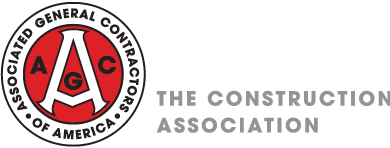What Do You Need To Get An Accurate Commercial Or Industrial Construction Bid?
Getting an accurate bid for a construction project requires detailed preparation and understanding of various factors. This article guides you through the essential steps and considerations to ensure your bid reflects the true scope and cost of your project. From defining the project scope and specifications to analyzing costs and assessing risks, each element plays a crucial role in developing a comprehensive and realistic bid. The article also outlines the process of consultation, site evaluation, design planning, and continuous monitoring, emphasizing the importance of client feedback and flexibility in adapting to changes. This approach helps in creating a bid that aligns with both the client's vision and practical project demands.
What You Need For An Accurate Bid
Project Scope and Specifications
Detailed description of the project, including the type of construction (commercial or industrial), size, location, and any specific requirements or features.
Design Documents
Complete set of architectural and engineering drawings and specifications. This would include floor plans, elevations, sections, and detailed construction plans.
Site Information
Details about the construction site, including site surveys, soil reports, and any known environmental or zoning issues.
Material Costs
Accurate and current pricing for all materials required for the project. This can vary significantly depending on the location and market conditions.
Labor Costs
Estimates of labor costs, including wages, benefits, and insurance for all workers. This should be adjusted for the project's location and the specific trades involved.
Equipment Costs
Costs associated with renting or purchasing necessary construction equipment.
Subcontractor Quotes
Bids or estimates from subcontractors for specialized parts of the project, such as electrical, plumbing, or HVAC systems.
Permit and Licensing Fees
Costs for all necessary permits and licenses required by local, state, or federal agencies.
Time Schedule
A detailed project timeline, including start and completion dates, to assess the duration of the project and potential impacts on costs.
Overhead Costs
Indirect costs associated with the project, including office expenses, utilities, and other administrative costs.
Contingency Allowance
An additional percentage of the total cost to cover unforeseen expenses and risks.
Profit Margin
The desired profit margin for the project.
Insurance and Bonding Costs
Costs for insurance policies and performance bonds to protect against accidents, damages, or non-completion.
Compliance Costs
Any costs associated with ensuring compliance with building codes, safety regulations, and environmental standards.
Client Requirements
Specific requests or requirements from the client that might impact the project cost, such as sustainability goals, custom materials, or accelerated timelines.
Process For Someone Looking To Get An Accurate Bid
Initial Consultation
Meet with the client to understand their vision, requirements, and objectives for the project.
Discuss the scope, scale, location, and any specific features or needs of the construction project.
Site Evaluation
Conduct a thorough site visit to assess the conditions, challenges, and potential limitations.
Gather information on zoning, environmental factors, and any existing structures or infrastructures.
Design and Planning
Work with architects and engineers to develop detailed design plans and specifications.
Ensure that the designs align with the client's requirements and budget considerations.
Cost Analysis
Prepare a detailed breakdown of all costs, including materials, labor, equipment, permits, and insurance.
Request and compare quotes from suppliers and subcontractors for specific components or services.
Risk Assessment
Identify potential risks and uncertainties that may affect the project costs.
Include contingencies in the budget to address these risks.
Timeframe Estimation
Develop a realistic project timeline, considering the scope of work and any potential challenges.
Factor in time for approvals, inspections, and potential delays.
Client Review and Feedback
Present the initial estimate to the client for review.
Discuss any areas of concern, potential changes, or adjustments to align with the client’s expectations and budget
Revision and Finalization
Revise the estimate based on client feedback and any new information or changes in project scope.
Finalize the estimate, ensuring it's comprehensive and includes all aspects of the project.
Approval and Agreement
Obtain client approval on the final estimate.
Draft and sign a contract or agreement that outlines the project scope, budget, timeline, and other essential terms.
Continuous Monitoring and Updating
Continuously monitor the project’s progress and costs.
Update the estimate as needed to reflect any changes or unforeseen developments.
Conclusion
In conclusion, obtaining an accurate bid for a construction project is a multifaceted process. It requires detailed understanding of the project's scope, costs, and potential risks. Effective communication with clients, thorough site evaluations, and meticulous planning are key. Balancing client requirements with practical considerations, while allowing room for unforeseen changes, ensures a reliable and realistic bid. This process not only aids in establishing clear expectations but also lays the foundation for a successful project completion.

